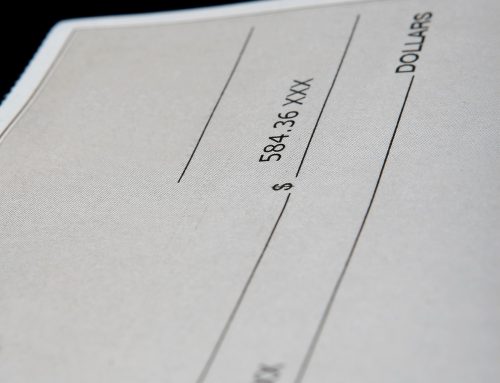One of the cheapest forms of financing available to your small business is credit from your suppliers. This is known as trade credit.
Trade credit is a buy now/pay later arrangement between a buyer (your company) and a seller (your vendors, aka suppliers). The amounts you owe are tracked and totalled in an account called Accounts Payable. You can find this account in the current liabilities section of your Balance Sheet.
Most businesses have two types of Accounts Payable. Those that are directly related to their main source of income (trade payables), and those that aren’t (non-trade payables). The type of business you have will determine whether you have one or both.
Businesses that are in the service industry will only have one type of accounts payable, the non-trade type.
Non-Trade payables are your expense type vendors. The utility company, phone company, the tax man, to name a few. These are your gotta have vendors. These are the guys you’re stuck with no matter what.
For those of you in the retail space, you’ll have both types of payables.
You’ll have the non-trade type (cause nobody weasels out of expenses) and, because you resell goods, you’ll also have the trade type. Your trade payables are the guys you buy your inventory from. These are the suppliers you tend to have more control over, as in YOU get to pick who YOU do and don’t buy from.
I should point out – if you’re just starting out, it’s gonna be next to impossible to find a supplier that will sell to you on credit. New business = high risk. High risk = C.O.D. only. So, be prepared to pay C.O.D. for the first 6 months or so.
Once you are able to get credit with a supplier, you’ll need to work out what are called credit terms.
These terms spell out the length of time you have to pay. They can range from zero days, to a few days, to a few weeks or months, with some terms even offering a discount if the you pay early.
Credit terms can be lumped into a couple of different categories:
- C.O.D. – Cash on delivery. No trade credit extended. You have to pay at the time you receive the goods or services
- Net terms – Credit is extended for a specified number of days. If your vendor offers terms of Net 30, you have 30 days from the date of invoice to pay the invoice. Terms of Net 60 mean you have 60 days from the invoice date etc.
- Cash discount – A cash discount is allowed if the invoice is paid early, otherwise, the full amount is due by the end of the net period. If you see terms of 2/10 Net 30, for example, you are allowed to deduct a 2 percent discount from the invoice (pre-tax amount) if you pay the invoice in 10 days. If you don’t take advantage of the early payment discount, the full amount is due 30 days from the date of the invoice
By the way, if you’re already up and going, you’ll probably be able to negotiate your own payment terms. Just because a vendor says you have to pay them in 30 days, doesn’t mean you can’t negotiate a longer term.
Timing
Are you paying your vendors faster than customers are paying you?
Obviously, you would like to match cash going out and cash coming in. When you don’t, you’re financing the gap between the two. Yikes! So, if your vendor offers terms of net 30 days, negotiate a payment period that coincides with the length of time it takes your customers to pay you. For example, if your customers typically pay in 45 days, negotiate a minimum 45-day payment term, this way money coming in and money going out will be in sync.
I should also point out, when it comes to this negotiating process, you and your vendor will have opposing goals. They’re going to want to get paid as soon as possible, while you’re going to want to delay payment as long as possible. So, make sure there’s some give and take.
Your Credit Rating
Once you have agreed on credit terms you both can live with, make sure you stick to them. Paying on time establishes trade creditability; something that is necessary to obtain credit from other sources. Late payments can result in interest and penalty charges (depending on your industry) and, if you’re chronically late, your supplier may decide to close your account all together.
So, make it easy for your suppliers to say YES. Manage your company credit rating as well as you manage your own rating, and buying on credit shouldn’t be a problem.
Karen







